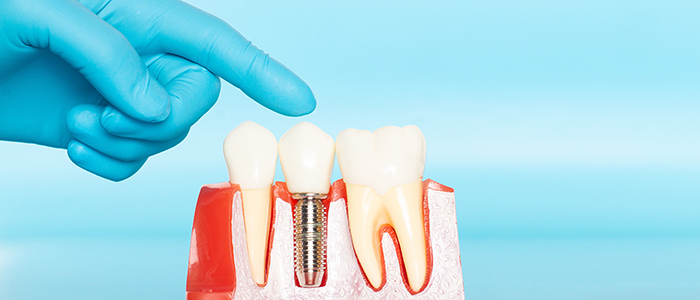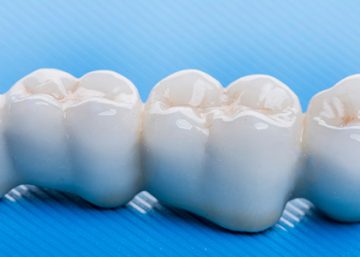
When you invest money into something you’ve been saving for, it’s natural to want to know how far those funds will go and whether the commitment is really worth your time. Dental implants are a perfect example of a long-term investment that can result in a fair amount of thought prior to placement. Our West Michigan dental implant dentists understand this and want to relay the details needed for an informed decision.
Here’s what you should know about the and why they last as long as they do.
How Are Dental Implants Built?
If you’re curious as to why single-tooth implants get billed as long-lasting, all you have to do is learn about their base materials and overall design. Most commonly, implants are constructed using titanium alloy which is bio-compatible, highly resistant to fracture, non-corrosive, and much better at handling pressure over time than other tooth replacement options. This means that if you’re looking to have a back tooth restored, implants are a great choice.
In terms of how they’re designed, a dental implant is meant to mimic a natural tooth root. Sure, it’s not the same, but all of the necessary components are there and because the implant is placed surgically, it’s able to become a permanent part of your mouth instead of resting on top of the gum line.
A complete single-tooth dental implant consists of 3 major parts: the dental crown, the abutment (connector piece), and the titanium post. These all combine together to look great and function like a real tooth, stimulating the jawbone which is needed to keep it healthy in the long run.
How the Process of Osseointegration Helps
The term “osseointegration” is a bit of a mouthful but it’s a natural process that involves the metal post of the implant fusing with your jawbone. This greatly contributes to the strength of dental implants and if this didn’t happen, there wouldn’t be any stability. Some patients may require prior to dental implant placement to build up the jawbone where it has deteriorated.
Generally speaking, you can expect for osseointegration and full healing to take several months after dental implant surgery. Your timeline may also be altered if bone grafting needs to occur. This is obviously much longer than other types of restoration but many of our patients would agree that the time required is well worth the end result. Our local dental implant dentists can discuss your individual situation with you so you’re aware of all commitments.
Why Is Regular Dental Implant Care Crucial?
It might seem strange that basic oral maintenance is still needed to maintain a dental implant even though it’s not alive or natural. The purpose of brushing at least twice a day, flossing at least once daily, and receiving professional teeth cleanings every 6 months is more so to keep your remaining teeth and surrounding gums healthy. If they were to deteriorate, the support for your implant would be in jeopardy.
Learn More -> 5 Tips for Dental Implant Care
Sticking to a strict oral hygiene routine will not only benefit your new implant(s), but your overall mouth health as well. Our dentists also recommend positive lifestyle choices like refraining from smoking or using tobacco products, especially during the healing process. Amazingly, implants can last the rest of your life if cared for properly.
Factors That Influence Implant “Failure”
While it is more rare, dental implants can fail if something goes wrong soon after placement or there are conflicting health conditions like diabetes. Physical injuries to the mouth or dental emergencies can disrupt the healing process while munching on harder foods before the bone has become strong enough can also cause issues and a higher chance of failure.
Contact us immediately if you experience any of the following:
- Persistent Pain or Swelling: While some discomfort is normal, persistent or worsening pain and swelling after the first few days can be a sign of infection or improper healing.
- Difficulty Chewing: Difficulty or pain while chewing after the initial healing period may indicate that the implant is not integrating correctly.
- Gum Recession or Bleeding: Any recession of the gums around the tooth implant or continuous bleeding should be examined by our dentists.
Accidental circumstances aside, our dentists only want to set you up for success so if we find through exams, medical records, and dental X-rays that implants are not for you, we’ll explore other suitable procedures like dental bridges or dentures.
Schedule a Dental Implant Consultation
Want to know more about the procedure itself and how it can benefit you? Our dental implant dentists in West Michigan would love to meet with you so we can hammer out all of the details. Call one of our MI Smiles Dental locations today to schedule an appointment.
This blog post has been updated.






